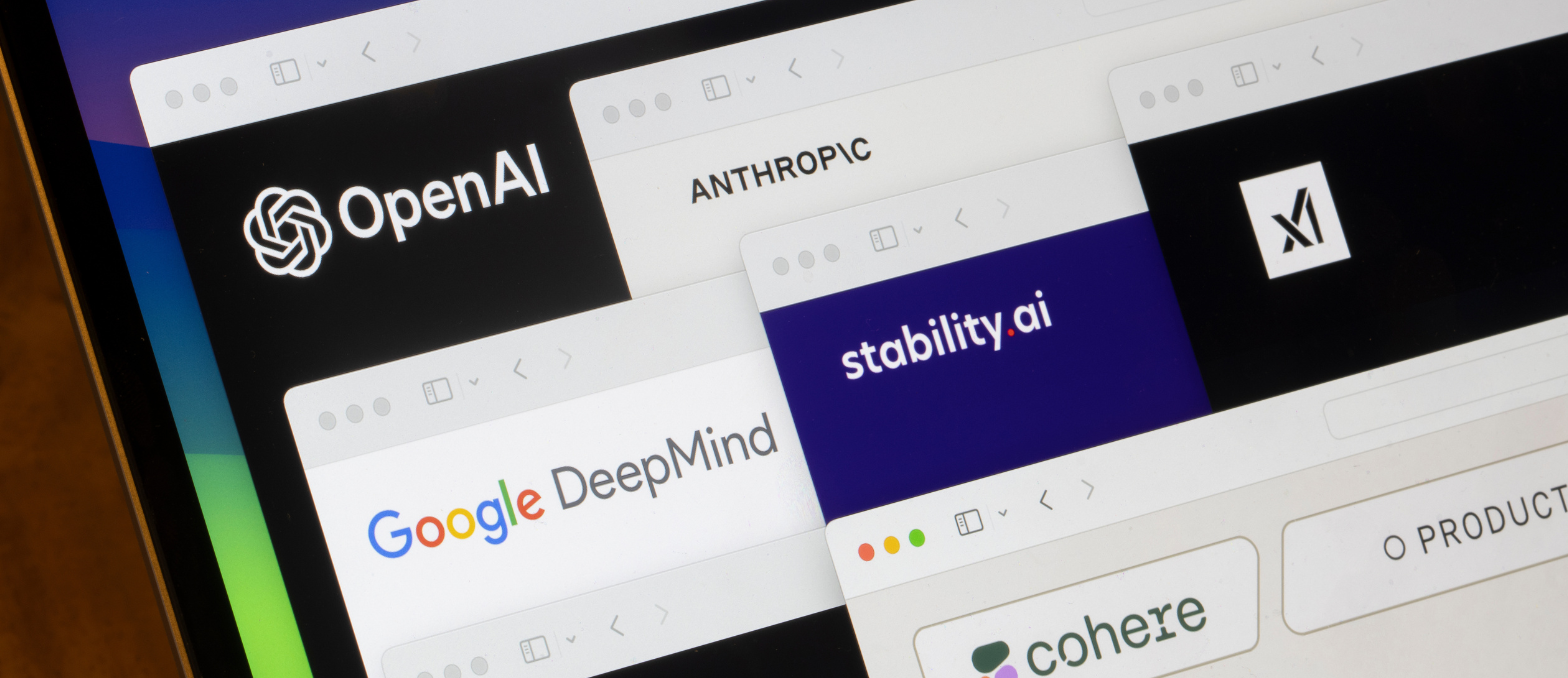Metaverse development services are quickly gaining attention as the next iteration of the internet: a virtual world accessed by immersive technologies that blend physical and digital realities. While still in its nascent form, the metaverse could fundamentally transform how we work, learn, shop, and socialize through shared virtual spaces. Metaverse platform developers will play a critical role in shaping the user experience of the metaverse by creating engaging and innovative applications for this emerging realm. As the technologies that power the metaverse like virtual reality, augmented reality, blockchain, and 5G improve, so too will the potential use cases and business models for metaverse apps expand. In this blog post, we will discuss everything you need to know to understand about metaverse app development.
Table of Contents
What is the metaverse and how does it work?
The metaverse refers to a potential future iteration of the internet as a shared virtual world where people can interact through avatars in virtual reality. While not fully developed yet, the metaverse concept envisions an immersive 3D environment where users can work, game, and socialize together. In the metaverse, users could experience events like attending concerts, shopping in virtual stores, or playing games with friends. The metaverse would allow for both physical and virtual goods through things like digital land, NFTs, and virtual currencies.
The core technologies that could power the metaverse development services already exist: virtual reality headsets, augmented reality, blockchain, 3D graphics, and utilities like crypto wallets. However, these technologies currently operate in silos and will need to converge into accessible and interoperable platforms. Companies are working on developing the infrastructure for a metaverse through networking protocols, standards, and virtual spaces. Meta has made “building the metaverse” a central part of its strategy. But a truly open and universal metaverse will likely require collaboration among multiple tech platforms.
Metaverse development companies could transform how we interact and spend time online, creating a new economy around digital goods and virtual experiences. However, there are open questions around data privacy, safety, equity, and addiction that will need to be addressed for the metaverse to develop in a responsible manner.
The metaverse concept envisions a future where online and physical realities more fully converge through immersive virtual worlds. Though still in its early stages, the technologies and infrastructure to power the metaverse are gradually coming together.
Key components and features of the Metaverse
The metaverse development services are envisioned as a next-generation version of the internet where users can interact and engage in an immersive virtual environment. There are several key components and features that would characterize a fully realized metaverse:
- Virtual reality – Wearable VR headsets would offer a fully immersive experience, allowing users to inhabit virtual avatars and interact within 3D virtual spaces.
- Augmented reality – AR glasses that overlay digital graphics onto physical environments could become an access point to the metaverse from the real world.
- Digital identities – Users would have persistent digital identities and avatars that represent them across different virtual spaces within the metaverse.
- Interoperable virtual spaces – Different virtual worlds and a metaverse development company within the metaverse would be interoperable. It allows users to move smoothly between them while keeping their avatars and digital assets.
- Digital assets and economy – Users could create, buy and sell digital goods like virtual items, land, collectibles, and art, powering a vibrant virtual economy.
- Shared social spaces – The metaverse would offer open virtual environments for users to gather, meet and socialize through their avatars.
- Gaming – Games would become an important entry point to the metaverse, allowing players to carry assets between different virtual game worlds.
While these features are still being developed and refined, together they point to a vision of an immersive, interconnected, and richly social virtual realm that runs parallel to the physical world. The metaverse, if realized, would represent an evolution of the internet into a multi-sensory virtual environment that we can inhabit through digital avatars.
The Potential of the Metaverse
The idea of a Metaverse-a fully realized immersive virtual world- holds great potential for work, play, and connectivity. Some of the main opportunities for a metaverse development company are:
- Work: The metaverse could transform how we work, allowing for fully immersive virtual workplaces and meeting spaces. Workers could collaborate in 3D, attend virtual training, and access digital documents – potentially boosting productivity through less commuting and more flexible arrangements.
- Education: Students could one day attend virtual classes and interact with realistic 3D simulations, virtual lectures, and interactive lessons. This could make education more accessible and effective through new formats.
- Social connection: The metaverse could offer new ways for people to socialize and form relationships across distances. Virtual spaces could help fight loneliness and isolation by allowing users to inhabit realistic digital embodiments of themselves.
- Gaming and entertainment: A metaverse development company would supercharge gaming by enabling fully immersive multiplayer experiences and persistent virtual worlds that carry over between different games. It could also open new forms of virtual entertainment.
- Commerce: A metaverse economy could empower digital commerce around virtual goods, NFTs, and digital land/assets-potentially opening new markets and business models.
However, realizing this potential will require addressing challenges around equity, addiction, privacy, and more. Not everyone will be able to access or afford VR technologies. And some users, especially kids, could overuse virtual worlds at the expense of real-life connections.
While the metaverse remains conceptual, its potential impact across areas like work, education, social life, and commerce is undeniably vast. But navigating that impact in ethical, sustainable, and inclusive ways will be crucial to its successful emergence.
Building Blocks of Metaverse App Development
Virtual reality technologies are essential for developing metaverse apps. VR headsets and software enable users to fully immerse themselves in virtual worlds. This can be done through spatial audio, realistic graphics, and 6 degrees of freedom of movement and interaction. Augmented reality technologies like smart glasses can also provide a gateway into the metaverse by overlaying digital enhancements onto the physical world. So, AR compatibility will be important for metaverse apps. Highly realistic and dynamic 3D graphics are necessary to create convincing virtual environments, requiring skills in 3D modeling, animation, and rendering.
Metaverse apps require robust network connectivity and cloud infrastructure to support large numbers of simultaneous users and virtual objects, involving technologies. It includes 5G, edge computing, and serverless computing. Blockchain provides the distributed ledger technology needed for tracking digital ownership and facilitating transactions within metaverse applications.
Standards are needed to ensure different virtual worlds and metaverse apps can connect and share data, aiming to provide the needed interoperability. Artificial intelligence can enhance metaverse applications by powering virtual assistants, advanced animations, and intelligent in-app agents.
Building compelling metaverse apps requires expertise across a range of technologies including VR, AR, 3D graphics, networking, blockchain, AI, and more. Metaverse developers and companies are just beginning to figure out how to best combine and optimize these building blocks to offer truly immersive and interconnected metaverse experiences.
Popular Metaverse App Platforms
Several companies are building platforms to enable the creation of metaverse applications. While the metaverse has yet to arrive, these platforms aim to provide tools for experiments and virtual world-building.
Roblox lets users make and play 3D games and virtual worlds. It has over 43 million daily active users. Creators use tools to build immersive voxel games and virtual experiences.
Facebook’s Horizon allows users to create and explore VR worlds using Oculus Quest headsets. Horizon aims at offering a foundation for the social experiences Facebook envisions for the metaverse.
Unity is a 3D development platform used by millions of creators worldwide. In addition to gaming, Unity seeks to become end-to-end metaverse development solutions for building metaverse applications through VR/AR integration and AI tools.
Microsoft’s Mesh allows users to collaborate and share virtual experiences using mixed-reality technologies. Mesh aims to enable virtual meetings, remote training, and shared creative work in virtual environments.
However, these individual metaverse platforms largely operate separately today. A true metaverse will likely require connectivity and interoperability between different virtual worlds and platforms. The platforms also face challenges around scalability, performance, and creating compelling user experiences. Overall, while these companies have a head start in providing metaverse development capabilities, no single solution has emerged as the definitive metaverse platform.
Essential Skills for Metaverse App Developers
As the metaverse evolves, developers will play a key role in building the applications and virtual worlds that power this new ecosystem. Some essential skills for Metaverse app developers include:
- VR/AR Development: Metaverse developers need proficiency with VR and AR technologies like Unity and Unreal Engine to create convincing 3D environments and interactions.
- Blockchain Skills: Understanding how blockchain works and experience with crypto wallets and smart contracts will be important for building applications that incorporate the metaverse economy.
- Web 3.0 Knowledge: Familiarity with nascent technologies like Web 3.0, which aims to power a more decentralized internet, will be valuable for metaverse platform developers.
- 3D Modeling and Animation: The ability to create high-fidelity 3D assets and animations will be critical for bringing virtual worlds to life. Metaverse platform developers require expertise in 3D modeling software.
- Artificial Intelligence: Integrating AI capabilities into applications, like machine learning and natural language processing, will enhance the metaverse experience.
- Interoperability: Metaverse developers must learn how to build applications that can connect and share data with multiple virtual world platforms in an open metaverse.
- Collaboration skills: As teams work across companies and geographies, metaverse platform developers need strong communication, stakeholder management, and agile practices to deliver complex metaverse projects.
While traditional coding and software engineering knowledge remain fundamentals, metaverse developers will also need a blend of VR/AR, blockchain, AI, and 3D skills. It should be combined with an understanding of how to build interoperable, collaborative systems that span virtual worlds.
Steps in Metaverse App Development
The development of applications for the metaverse will follow many of the same steps as traditional software development. On the other hand, some additional considerations due to the complex technological requirements. The key steps in metaverse platform development include:
- Define goals and features: Clearly articulate the purpose of the app and the problems it aims to solve for users. Specify the core features and functionality.
- Choose a development platform: Select the platforms and technologies needed to achieve the desired features, like Unity, Unreal Engine, Web 3.0, and blockchain.
- Create 3D assets: Develop high-quality 3D models, textures, animations, and other assets to populate the virtual worlds.
- Design user interface: Design the UI/UX for both 2D screens and 3D virtual environments, taking into account spatial interactions.
- Develop VR/AR capabilities: Leverage tools from the chosen development platform to create spatial audio, realistic graphics, and immersive functionalities.
- Integrate blockchain and NFTs: Implement blockchain and crypto wallet integrations to enable transactions, ownership, and interoperability where relevant.
- Test and debug extensively: Thoroughly test the app’s performance, stability, and user experience across devices to identify and fix issues.
- Rollout and iterate: Launch an initial version and gather user feedback to refine and expand the app over time.
Throughout development, key considerations for metaverse apps include enabling interoperability, facilitating social interactions, optimizing for low- latency, and building an engaging community. By following a systematic development process and addressing the unique features of the metaverse, development teams can successfully deliver high-quality metaverse applications.
Challenges and Considerations
While the concept of a metaverse is compelling, there are many challenges and considerations that need to be addressed for it to develop in a responsible and sustainable way. Some of the key issues are:
- Environmental impact – The massive computing power and energy usage of blockchain and data centers pose sustainability challenges for the metaverse. Metaverse development solutions will be needed to reduce the carbon footprint of virtual worlds.
- Social isolation – There are concerns the metaverse could exacerbate loneliness and isolation by replacing in-person connections with virtual interactions. Balanced usage will be important.
- Mental health – Some users, especially children, may become addicted to immersive virtual experiences at the expense of physical and psychological well-being. Safeguards will be needed to prevent overuse.
- Safety and privacy – Without proper safeguards, the metaverse could expose users to harassment, exploitation, and privacy violations. Robust safety and privacy protections will be critical.
- Inequality of access – Not everyone will be able to afford the necessary technologies like VR headsets to access the metaverse. Digital divides may emerge along income, age, and geographical lines.
- Governance and regulation – There are open questions about how to properly govern and regulate the metaverse to minimize harm and maximize benefits. New laws and international agreements may be needed.
- Ethical design – Metaverse creators will need to build these systems with principles of transparency, ethics, and human well-being in mind from the outset.
Monetization Strategies for Metaverse Apps
As the metaverse develops, there will be many opportunities for metaverse platform developers to monetize their creations. Some potential strategies include:
- Premium subscriptions: Offering paid subscriptions to access additional features, content, or virtual goods within an app. This is a common monetization model for both physical and virtual worlds.
- In-app purchases and microtransactions: Allowing users to purchase virtual items, avatars, skins, and other goods using real money. This could be a major revenue source for metaverse apps with virtual economies.
- In-game advertising: showcasing brand advertisements and sponsorships within virtual environments for app users, particularly for free-to-play metaverse games and experiences.
- Transaction fees: Take a small percentage of the transaction value whenever users exchange digital assets or currencies within an app’s metaverse, similar to how crypto exchanges operate.
- Virtual real estate: Selling digital land, buildings, and other virtual spaces within apps to users looking to own property within metaverse environments.
- NFT marketplaces: Enabling users to create, buy and sell non-fungible tokens (NFTs) that represent virtual items, art, and collectibles, with the app developer receiving transaction fees.
- Affiliate marketing: Partnering with relevant brands to promote their products and earn a commission whenever an app user makes a purchase through the affiliate link.
While some of these models exist in today’s apps, the metaverse may enable new forms of virtual commerce that lead to innovative monetization strategies. However, metaverse platform developers will need to balance monetizing their creations with providing positive user experiences within the metaverse.
Want to capitalize the exciting trend of Metaverse App Development?
Join hands with the experienced metaverse developers
Community and Collaboration in the Metaverse
Community and collaboration will play vital roles in shaping the development and experience of the metaverse. Some key aspects are:
- Social interaction: The metaverse offers new ways for people to connect and form communities through their digital avatars and virtual spaces. However, balance will be important to avoid isolating people from real-world connections.
- Sense of belonging: For individuals, being part of metaverse communities can fulfill needs for relatedness and foster a sense of shared identity with others. But care must be taken to ensure communities remain inclusive and diverse.
- Collaborative creation: Much of what is built in the metaverse will be done collaboratively through people working together in virtual spaces. Tools that facilitate online teamwork and partnership will be essential.
- Open communication: For metaverse communities to thrive, members must have ways to openly communicate with transparency, civility, and respect for diverse viewpoints. Systems that promote healthy dialogue will be needed.
Consequently, nurturing positive community experiences and enabling collaborative innovation will be just as important as the technological foundations in realizing the full potential of the metaverse. Much will depend on how well metaverse communities and environments incorporate social considerations into their design and governance from the beginning.
The Future of Metaverse App Development
The future of metaverse app development is poised for rapid growth and evolution as the technologies and platforms that power the metaverse mature. While no single metaverse development company or platform currently dominates the metaverse, that is likely to change in the coming years as the market consolidates. Developers will play a crucial role in shaping user experiences and economies within the metaverse. Key trends for the future include:
- Increasing interoperability: Standards and protocols will improve to allow virtual assets, avatars, and interactions to move seamlessly between different metaverse apps and worlds. This interoperability will be key to a unified metaverse experience.
- Advances in VR/AR technologies: Wearables like AR glasses will become more widespread, bringing the metaverse into everyday life. VR headsets will offer higher resolutions, lower latency, and more comfortable form factors.
- Automation and artificial intelligence: AI technologies will increasingly automate routine tasks for metaverse platform development to improve efficiency. AI assistants and agents will enhance virtual worlds.
- Growing virtual economies: As metaverse platforms scale, their in-app economies around digital goods, assets, and currencies will become more robust and complex, opening up new opportunities for developers.
Ethical Considerations in Metaverse App Development
As the metaverse expands, developers will need to carefully consider the ethical implications and social impacts of the virtual applications and environments they create. Some important considerations include ensuring:
- Inclusivity and accessibility – The metaverse should work to include people of all backgrounds and abilities, requiring universal design principles and efforts to reduce cost barriers.
- Privacy and data protection – Users’ personal data and online activities within Metaverse apps should be properly safeguarded and only used with consent.
- Transparency around practices – App developers should be transparent around data collection, use of personal information, and monetization strategies to build trust with users.
- Safe and secure environments – Metaverse apps need robust protections against risks. It includes harassment, exploitation, addiction, scams, and data breaches to keep users safe, especially children and vulnerable groups.
- Responsible use of artificial intelligence – Any AI and automation within apps should be developed with principles of fairness, accountability, transparency, and human oversight to avoid unintended harm.
Conclusion
Metaverse platform development is an exciting and emerging field. Developers have the opportunity to help shape how people interact, socialize and do business in virtual worlds. While there are many challenges and considerations around privacy, safety, and ethics, metaverse app development done responsibly has the potential to enhance people’s lives in meaningful ways. The technologies are rapidly advancing, so developers who gain the necessary skills now will be well-positioned to create the applications and experiences that define the metaverse of the future.
FAQs
What is metaverse app development?
Metaverse app development refers to the process of creating applications and virtual environments within the emerging metaverse. The metaverse concept envisions a future where online and physical realities more fully converge through shared virtual worlds. Metaverse app developers need skills like virtual reality, augmented reality, 3D graphics, blockchain and AI to build applications that enable immersive and interconnected experiences within the metaverse. These may include gaming apps, social platforms, e-commerce environments, training simulations, and more. As the metaverse develops, developers will play a key role in determining what it becomes through the virtual applications they create.
How do you develop for the metaverse?
To develop for the metaverse, you need skills across multiple technologies combined with an understanding of virtual world design. The basic steps to developing a metaverse application include:
- Define goals and features for your app
- Choose a development platform like Unity or Unreal Engine
- Create high-quality 3D assets
- Design for both 2D screens and 3D environments
- Develop VR/AR capabilities for immersion
- Integrate blockchain/crypto for ownership and transactions
- Thoroughly test and iterate based on user feedback
- Enable interoperability so your app can connect to others
Which tool is used to develop the metaverse?
Metaverse can be developed using several tools and the most popular ones are:
- Unity – A cross-platform game engine widely used for creating 3D content. It offers tools for VR/AR, AI, physics, animations, and more.
- Unreal Engine – Another game engine with support for photorealistic graphics, virtual reality, cross-platform development, and integrated AI/physics systems.
- Roblox Studio – A creation tool built by Roblox to develop games and 3D experiences for their metaverse platform.
- Amazon Sumerian – A cloud-based toolkit from Amazon for building VR/AR/3D applications. It integrates with AWS services.
- Koov – A no-code building platform that enables users to visually design and deploy metaverse apps.
Which programming language is Metaverse using?
Multiple programming languages can be used to develop applications for the metaverse development services. The choice depends on the tools and platforms being used. Some common languages for metaverse development include:
- C++ – A fast, low-level language often used to program game engines like Unreal and build performance-intensive systems.
- C# – A popular object-oriented language supported by the Unity game engine and Microsoft’s .NET framework.
- JavaScript – A scripting language mostly used for client-side web development but also supported by some metaverse development services and tools like Unity.
- Lua – A lightweight scripting language embedded in several game engines and metaverse platforms. Roblox mainly uses Lua.
- Python – A high-level language gaining adoption for AI, data sciences, and rapid prototyping of metaverse apps due to its simplicity.
How developers use AI in metaverse?
Several types of artificial intelligence can play important roles in metaverse applications. Machine learning can power features like content recommendations, fraud detection, and virtual assistants. Deep learning enables advanced capabilities like image recognition, natural language processing, and data analytics. Virtual environments can detect and understand virtual objects through the utilization of computer vision. Developers can utilize natural language processing for implementing chatbots, search functionality, and semantic analysis in the metaverse. Reinforcement learning has the potential to automate complex tasks and train virtual agents.






